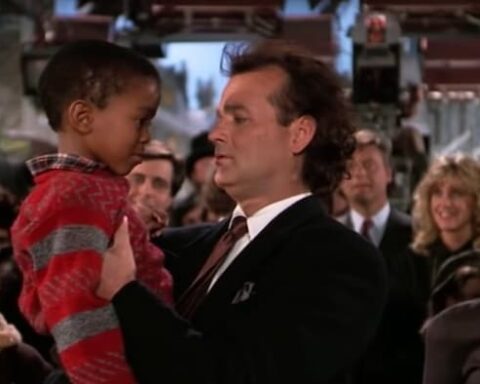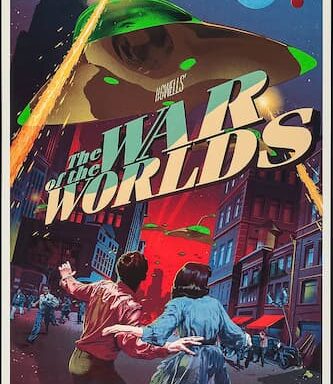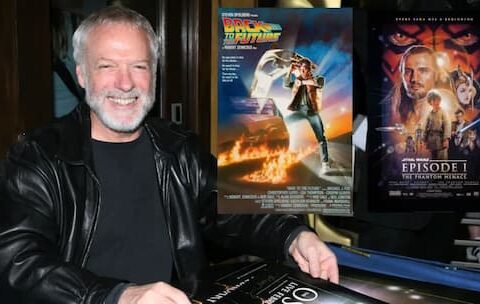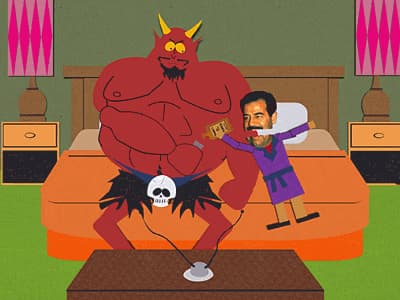The passing of Peter O’Toole in December was a sad moment for me; not only because he was one of the greatest screen presences of the past fifty years and one of the last – if not the last – surviving greats of a golden age of cinema.
But mostly because I had a strong personal affection for the man and his work, stemming primarily from my undying love for the film Lawrence of Arabia, which I consider a contender for the greatest movie ever made.
And if it is the greatest cinematic masterpiece, then O’Toole was an absolutely inseparable component of it, which would place him in cinema history as having been the lead in the greatest cinematic masterpiece.
Peter O’Toole’s body of screen work is a strange, scattered one, not necessarily filled with numerous box-office hits as you might expect from an actor of his stature, but with varied and textured performances and a highly diverse span of films, ranging from such extremes as 2008’s Venus at one end to the animated hit Ratatouille at the other.
It is testament to that diversity of work that my love affair with O’Toole began when I was a child watching the 1984 Supergirl movie (which would be considered low-brow – and probably something O’Toole himself would rather not draw attention to) – in which O’Toole played ‘Zaltar’ – but was consummated a decade or so later when I watched Lawrence of Arabia (made in 1962) for the first time and had my breath taken.
He was an unknown when David Lean cast him in Lawrence of Arabia, the film that turned him into an overnight superstar. Remarkably, Marlon Brando was the original first choice for that iconic role – which is now frankly impossible to imagine happening.
But what an epic performance. It has been so iconic and so analysed already that I feel comfortable skipping over it here.
He was in some pretty bad films too, it has to be said; but such was his presence that he became “the only good thing” about a number of otherwise terrible movies, as “great presences” tend to be.
He could also be guilty of phoning in his performances too. One of the most bemusing films I’ve ever watched is Night of the Generals, in which O’Toole plays a Nazi General, but does the whole thing in the most unconvincing manner and with not even a hint of a German accent in sight. Funnily enough, his Lawrence co-star Omar Sharif is also in the film (also as a Nazi) and does the entire thing in his Egyptian accent – so, evidently, realism wasn’t the agenda of that movie.
How great was O’Toole? Where does he stand in the all-time pantheon? It’s largely subjective, of course; but he has to be up there with the best of the best.
In reality, his filmography doesn’t necessarily reflect his god-given talents all the way through – but whose does?
And in truth, despite one of the most iconic performances in cinema history, he did spend the later couple of decades – as far as his screen career was concerned – playing minor supporting roles and eventually also being the cliched ‘old man for gravitas’.
That said, I still have a soft spot for King Ralph, as silly as that film is.
In picking my five favorite O’Toole screen performances, I must stress these are my personal favorites for various reasons, sentimental or personal – this isn’t my list of his ‘best’ films necessarily (other than ‘Lawrence…‘, which is clearly one of his best, not to mention one of the best screen performances there ever was).
This post isn’t to heap further superlatives on his more critically-acclaimed performances; his stint with Richard Burton (another great presence, to whom O’Toole was often compared) in ‘Becket’, or ‘How To Steal A Million’ with Audrey Hepburn, or his ‘eccentric’ (wasn’t he always eccentric?) performance in ‘The Ruling Class’. Those are already well attested to. Watching O’Toole and Burton in Becket is almost an overload of on-screen charisma and gravitas; but O’Toole reprising the same role four years later to star opposite Katharine Hepburn in The Lion in Winter is even more so.
For all his stature as an actor and all of his Oscar nominations over the years, O’Toole was famously the most nominated actor to never win an Academy Award. In the end, the perceived injustice of this had to be remedied by the Academy giving him an honorary award for his contribution to film.
How O’Toole’s Lawrence performance didn’t garner an Oscar is probably the greatest mystery in the history of that institution.
This article, on the other hand, highlights O’Toole performances that meant something to me personally, and in so doing touches upon the fact that we each respond to certain actors, performers or writers in our own way and have our own things we love them for; that however ‘objectively’ brilliant someone or something can be, there are also all kinds of subjective factors and nuances in a film or performance that makes an impression on us and defines how we perceive someone.
The fact I can compile a top five of O’Toole performances here and that it doesn‘t refer to some of the more obvious options mentioned above – or even some other lesser-known roles that I considered, such as his portrayal of the Emperor Tiberius in ‘Caligula’ or his role in the now-largely-forgotten 1999 CBS mini-series Joan of Arc, starring Leelee Sobieski – is further testament to how brilliant an actor and how powerful a screen and stage presence his was.
His award-winning performance as Bishop Cauchon in that Joan of Arc series was, for the record, superb; that was actually a very well-made series, but as far as acting quality goes, O’Toole’s presence infused it with a gravity that it would’ve otherwise not had from the rest of the cast.
It was another testament to how the presence of one particular actor can raise the quality of a piece or even compensate for the rest of the ensemble. I really wanted to include that performance, in fact, in my chosen five; alas, there must always be sacrifices.
So here, in any case, are my 5 favorite memories of Peter O’Toole…
1. Lawrence of Arabia
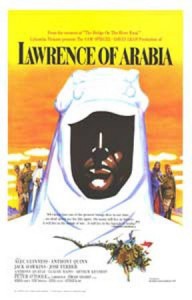
OK, so it really goes without saying.
A breathtaking, mesmeric performance, framed beautifully by David Lean’s equally breathtaking genius of filmmaking. More extraordinary is the fact that the same film features absolutely superb performances from both Alec Guinness and Anthony Quinn, not to mention a remarkable Hollywood debut from Omar Sharif, and yet O’Toole still shines out so brightly as the story’s gravitational center.
There’s not much else I can say about this film or this performance that hasn’t been said a million times by others. O’Toole is mesmeric throughout, aided of course by the epic, compelling sweep of the story and the masterful cinematography.
In some ways, you wonder if there’s almost a Citizen Kane element to O’Toole landing this role so early in his career – and spending the rest of his screen life in its enormous shadow.
____________________________
2. Venus
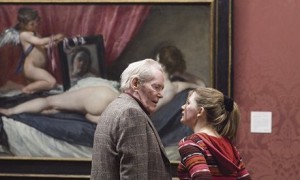
Hanif Kureishi’s acclaimed film, late in Peter O’Toole’s life, is a quiet, understated piece, as far away from the epic sweep of Lawrence or the theatrical flair of Lion In Winter as you could get, and featuring a suitably quiet, understated portrayal by O’Toole of an ageing, terminally ill ex-actor in love with a brash, loutish young woman.
The pair manage to develop a meaningful, if somewhat perverse, friendship, despite Maurice‘s (O’Toole) infatuation with (Jodie Whittaker’s) Jessie, which she is at different points revolted by, intrigued by and even indulgent of, if only playfully.
Strange that a film that could easily be perceived as the story of a lecherous old man lusting after a promiscuous young girl could instead translate as a moving, even sweet, ode to platonic love (albeit via unrequited infatuation).
It’s a poignant film and an especially poignant O’Toole performance, aided by a quality cast that includes Leslie Philips and Vanessa Redgrave, and an endearing performance from Jodie Whittaker, who manages an unlikely on-screen dynamic with O’Toole.
And yet another – the record eighth and final one – O’Toole Oscar nomination minus the win. I’m not sure he necessarily cared anymore, however.
____________________________
3. The Lion In Winter.
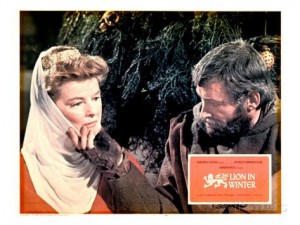
The revered, universally acclaimed 1968 film was a historic, marital drama about Henry II and his exiled, estranged wife, Queen Eleanor of Aquitane, portrayed by the great Katherine Hepburn (who won Best Actress Oscar for her role, yet O’Toole AGAIN didn’t get Best Actor).
Sublimely acted, unashamedly theatrical, there’s something undeniably wonderful about watching two superb, charismatic giants of cinema sparring and bickering, bringing a sharp and witty script to life as only they can.
A drawn-out war of words between two screen masters – you can’t go wrong with that. The entire film in fact lives and dies by those two titanic performances and the way Hepburn and O’Toole really embrace the dialogue duel like it is a duet. “We’re in the cellar and you’re going back to prison and my life is wasted and we’ve lost each other… and you’re smiling…”/”It’s the way I register despair…”
I’ve heard someone refer to this film as “boring”; that person’s idea of a good movie is probably Fast and Furious, however.
____________________________
4. Masada

Now here’s a more questionable one.
‘Masada’, a forgotten TV mini-series that aired in 1981, was a series about the Jewish Revolt against the Romans in 70 AD. While not overall necessarily a great series (it was overly Zionistic to the point of being offensive, especially the opening sequence; though as a series it has its moments and was very interesting), ‘Masada’ is a perfect example of a not-brilliant project being elevated by one of its performers – which is something that Peter O’Toole did so often throughout his career.
In this case, O’Toole’s performance as General Cornelius Flavius Silva makes the whole thing more than watchable – I don’t think it would‘ve been as watchable without him (and this was a series that also featured such talent as Anthony Quayle and David Warner, but that wouldn’t have raised the series above its weight in the way that O’Toole’s presence did).
That’s how good he was; his on-screen presence bringing the entire thing to life from literally his first appearance and carrying your interest through to the end. To be honest I only bought and watched this obscure series because he was in it anyway.
This is perhaps O’Toole at his most effortlessly charismatic. If you’ve never seen this mini-series, it is worth seeing – even if it’s only for O’Toole’s central performance.
____________________________
5. Supergirl
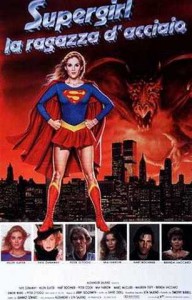
So this is probably the one most people would turn their nose at.
But again, as this is a personal list, I had to include O’Toole’s performance as ‘Zaltar‘ in this certainly-popular-at-the-time movie that starred Helen Slater as Superman‘s famous cousin.
I had to include it because this was the first time I ever saw O’Toole in anything; I was about six or seven at the time and loved this film to bits. Zaltar’s death used to upset me every time.
Of course, if I was a suave, sophisticated type I’d never put Supergirl in this list ahead of, say, The Ruling Class; but again I’m being sentimental and honest. Actually I won’t lie – I do still really like this movie. And given than Faye Dunaway and Peter Cook were also in it, O’Toole wasn’t in such bad company.
And it is a great comment on O’Toole’s span of work that at one time he could be dazzling high-brow critics on the stage as King Lear and at another he could be eliciting cries of ‘no, Zaltar’s dead!’ from a six-year-old who wouldn’t have known King Lear from King Ralph.
Um, but he certainly wasn’t up for an Oscar this time, which meant he didn’t have to waste his fucking time dressing up and sitting around only to watch some lesser actor receive an award.
_________________
Other fans of Peter O’Toole will have their own personal lists – and most will probably differ from this one. But that simply testifies to the diverse nature of his career and the fact that he would’ve touched people’s lives or cultures in very different, personal ways.
I imagine there’s nowhere else you’ll find Lawrence of Arabia and Supergirl sharing page space on a list.
I will remain sad for some time at the passing of such a screen legend: and of someone who has been a giant in my cultural landscape since I was just a kid. But like Lawrence, O’Toole will also no doubt live on for a very long time; on screen, in books, in anecdotes, and in the annals of both cinema and twentieth century culture.
He was already guaranteed immortality as far back as 1962.
_________________

